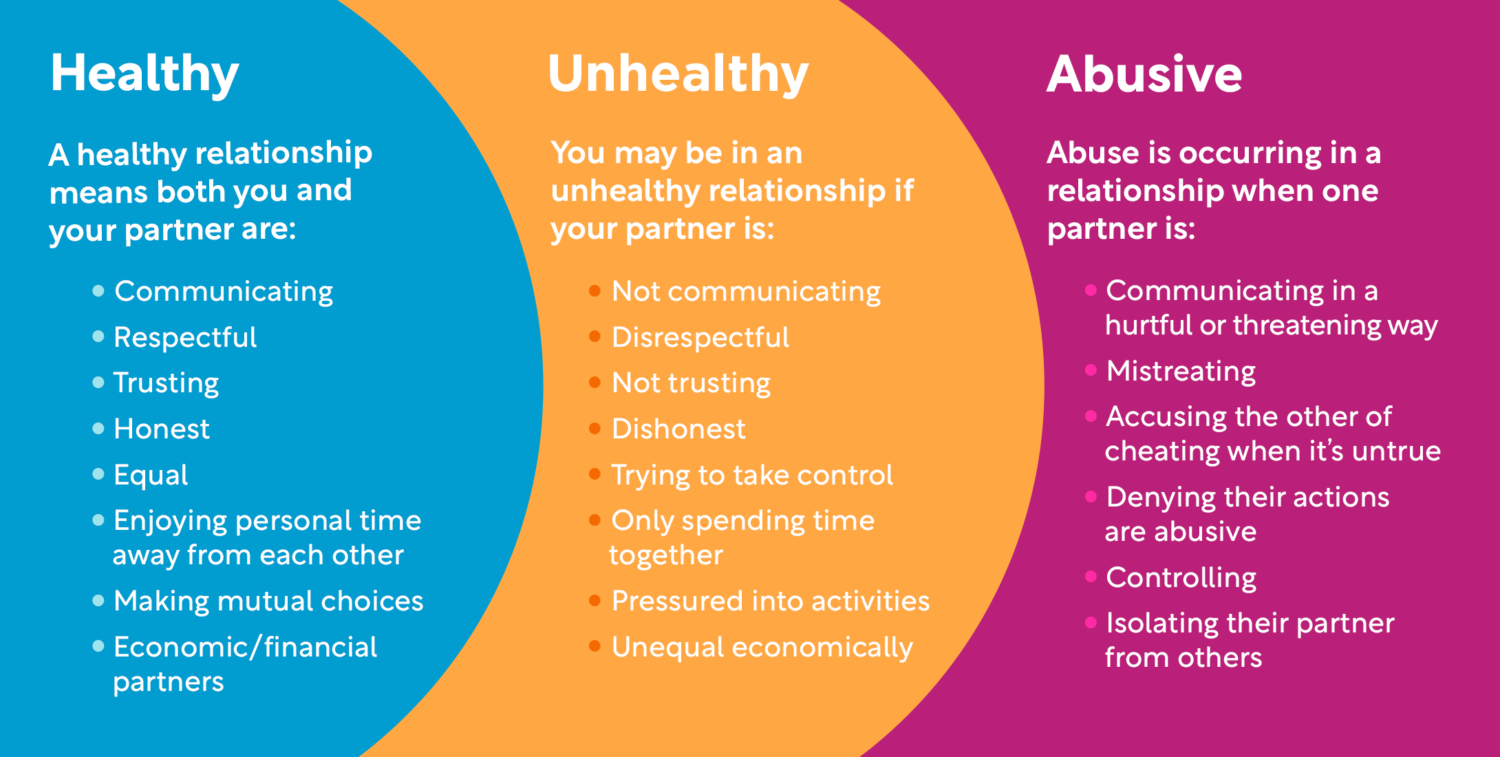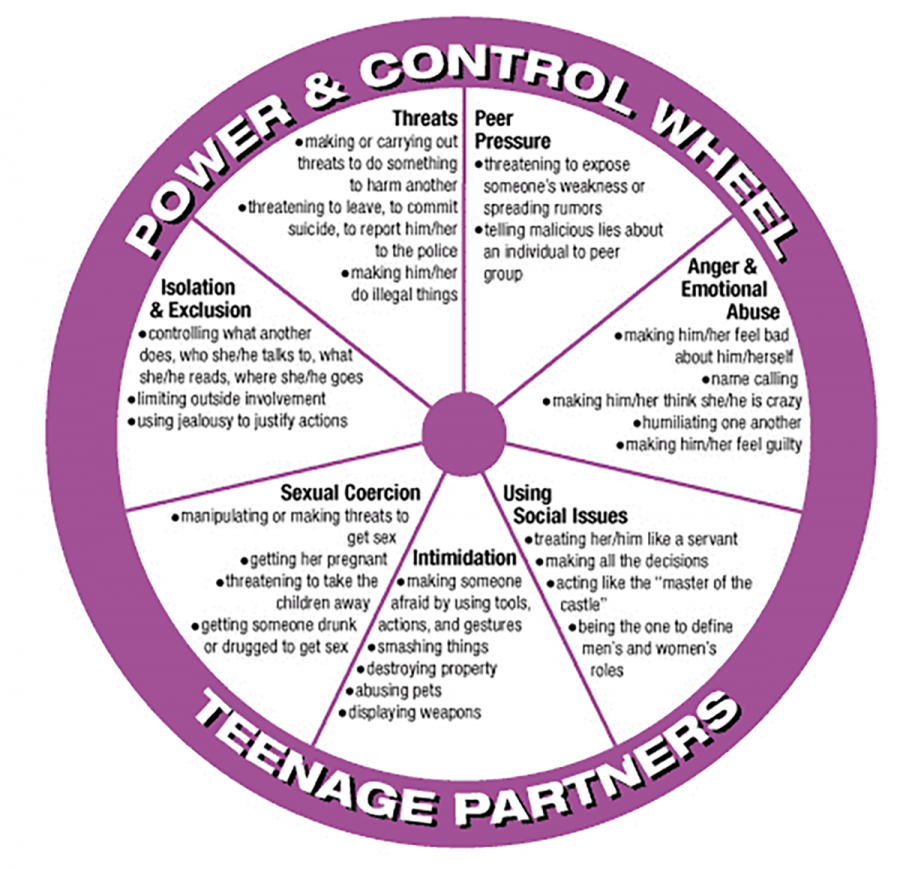Types of Dating Abuse

Physical Abuse
Involves intentional, unwanted contact to your body with the intent to cause injury, disability, or death. This can be slapping, shoving, kicking, pinching, punching, etc.

Emotional/Verbal Abuse
Is a form of non-physical abuse, subjecting you to behaviors that cause a diminished sense of identity, dignity, and self-worth. This can include threats, insults, intimidation, stalking, and isolation.

Sexual Abuse
Being forced to take part in any sexual activity when you do not want to or being exposed against your will to sexually explicit material.

Digital/Technological Abuse
The use of technologies such as social media and texting to harass, stalk, bully, or intimate you. This is often considered verbal or emotional abuse online. It can include constant texting, calling, emailing, and social media messaging to either threaten, check up on you, or track your location. Other examples include sending unwanted, explicit pictures and/or demands for you to send pictures, checking your phone, or demanding to know your passwords for social media platforms.

Stalking
Constantly watching, harassing, or following you, making you feel unsafe or afraid.










